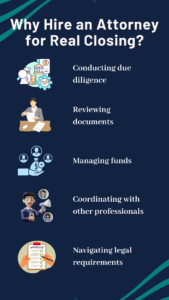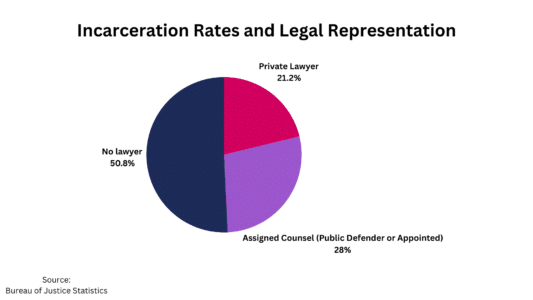Advocating for Crime Victims: Legal Support Services in Houston – Guest Post

In the bustling cityscape of Houston, the unfortunate reality of crime casts a shadow on the lives of many residents. For those who fall victim to criminal acts, the aftermath often brings a maelstrom of emotional, financial, and legal challenges. It is paramount that these individuals receive comprehensive support to navigate the complexities of the legal system and to restore a sense of justice and normalcy to their lives. This article shines a light on the legal support services available in Houston, offering a beacon of hope for crime victims seeking advocacy and assistance.
The Plight of Crime Victims
Houston, like any major metropolis, grapples with its share of criminal activity. According to recent statistics, the city has experienced fluctuations in crime rates, with particular concerns around violent offenses. Crime victims are left to contend not only with the immediate physical and psychological trauma but also with the daunting prospect of seeking justice. They often face hurdles such as costly medical bills, lost wages, and the intricacies of a legal process that may seem alien to them.
The impact of crime resonates differently across various demographics. Women, children, the elderly, and economically disadvantaged groups may find themselves particularly vulnerable, each with specific needs that require tailored support. It is within this context that the rights and resources available to crime victims become crucial components of their recovery journey.
Understanding Victims’ Rights
Victims of crime in Texas are entitled to certain rights designed to protect their interests and facilitate their involvement in the criminal justice process. These rights include the ability to receive information about the proceedings, to be present at all public court proceedings related to the offense, and to offer input during sentencing.
Furthermore, the Texas Crime Victims’ Compensation Program serves as a lifeline, providing financial assistance to victims and their families for expenses incurred as a result of the crime. This program underscores the state’s commitment to alleviating the economic burden that can compound the suffering of crime victims.
The Texas Office of the Attorney General plays a pivotal role, advocating for crime victims and ensuring that their rights are upheld throughout the legal process. This office operates as a cornerstone of support, guiding victims through the maze of legal procedures and helping them access the services they need.
Legal Support Services for Crime Victims in Houston
Non-Profit Organizations
Non-profit organizations in Houston are on the front lines, offering specialized services to those affected by crime. The Houston Area Women’s Center stands out as a sanctuary for victims of domestic and sexual violence, providing counseling, shelter, and legal advocacy. These services are essential in empowering victims to reclaim control over their lives and to pursue justice against their perpetrators.
Crime Stoppers of Houston contributes to the city’s safety by facilitating anonymous reporting and offering rewards for information leading to arrests. This organization also extends support to crime victims, ensuring they have access to resources and assistance throughout their ordeal.
For child victims of sexual abuse, The Children’s Assessment Center offers a compassionate and comprehensive approach. With a focus on minimizing further trauma, the center coordinates investigative, legal, and therapeutic services, creating a multidisciplinary response tailored to the sensitive needs of young victims.
Government Agencies
Government agencies play a significant role in providing legal support to crime victims. The Harris County District Attorney’s Office features a Victim Witness Division dedicated to informing and assisting victims throughout the prosecution of their cases. By keeping victims apprised of developments and facilitating their participation, this division helps to ensure that their voices are heard within the justice system.
The Houston Police Department’s Victim Services Unit is another key resource. This unit provides immediate assistance to victims, offering crisis intervention, referral services, and guidance on victims’ rights and compensation.
Victim Assistance Coordinators, often found within law enforcement agencies, serve as liaisons between victims and the various facets of the criminal justice system. Their role is to streamline communication, reduce confusion, and advocate for the needs and rights of victims as they confront the reality of the crimes committed against them.
Houston Crime Victim Attorney is a valuable resource for those seeking legal representation. This link serves as a gateway to experienced attorneys who specialize in assisting crime victims, ensuring that their legal rights are protected and their cases are handled with the utmost care and professionalism.
Navigating the Legal System
The journey through the legal system can be daunting for crime victims. Quality legal representation is critical in ensuring that victims’ rights are protected at every stage—from reporting the crime to the law enforcement, through the investigation, and during the trial. Legal support services can assist victims in understanding the process, preparing for court appearances, and securing protective orders or restitution.
The role of legal advocates and attorneys is to demystify the legal jargon and procedures for victims, allowing them to make informed decisions about their cases. They also help victims communicate effectively with prosecutors and law enforcement, ensuring their stories are heard and considered. By providing this guidance, legal support services empower victims to become active participants in the pursuit of justice.
Community Support and Resources
Beyond the courtroom, community support and resources play a vital role in the healing process for crime victims. Educational programs and community outreach initiatives are essential for crime prevention and raising awareness about the resources available to victims. These programs also serve to inform the public about the importance of supporting crime victims and recognizing the long-term effects of crime on individuals and communities.
Support groups and counseling services address the emotional and psychological scars left by crime. These services provide a safe space for victims to share their experiences and begin the process of healing alongside others who have faced similar traumas. Legal services often collaborate with mental health professionals to ensure that victims receive holistic care that addresses both their legal and emotional needs.
Challenges in Providing Legal Support
Despite the availability of legal support services, there are significant challenges in providing assistance to all who need it. Funding and resource limitations can hinder the ability of nonprofits and government agencies to serve every victim. These constraints can lead to long wait times for services or the inability to help everyone to the fullest extent.
Language barriers and cultural differences present additional obstacles in providing effective legal support. It’s crucial for services to be accessible to non-English speakers and sensitive to cultural nuances to ensure that all victims receive equitable support.
Stigma associated with being a crime victim can also deter individuals from seeking help. Overcoming this stigma is an ongoing effort, requiring community education and the normalization of seeking assistance after a crime has been committed.
Conclusion
The need for strong advocacy and comprehensive legal support for crime victims cannot be overstated. In Houston, a network of dedicated organizations and professionals works tirelessly to ensure that victims are not alone in their fight for justice and recovery. While challenges persist in providing these essential services, the commitment to supporting crime victims remains unwavering.
As members of the Houston community, it is our collective responsibility to support these legal services and to stand in solidarity with crime victims. Whether through volunteering, financial contributions, or simply spreading awareness, every action taken can make a profound difference in the lives of those affected by crime.
Additional Resources
For those seeking more information or assistance, the following resources are available:
- Houston Area Women’s Center: hawc.org
- Crime Stoppers of Houston: crime-stoppers.org
- The Children’s Assessment Center: cachouston.org
- Texas Crime Victims’ Compensation Program: texasattorneygeneral.gov
- Harris County District Attorney’s Office – Victim Witness Division: app.dao.hctx.net
Keep an eye out for upcoming events and initiatives in Houston that focus on supporting crime victims and consider how you can contribute to these vital efforts. Together, we can make a difference in the lives of those who have suffered at the hands of crime and ensure that justice is served.













